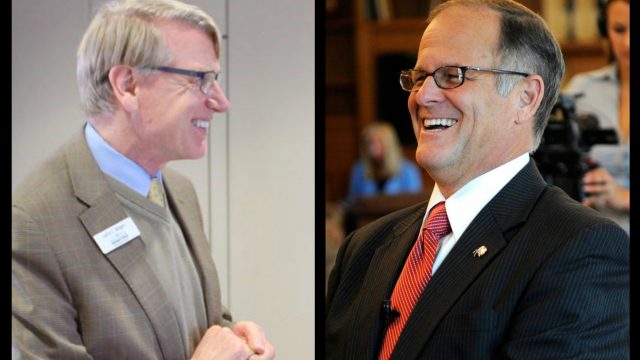After Controversy, North Dakota State Gets Pass On Participating In University Email System

North Dakota State University President Dean Bresciani has requested – and received – permission from University System Chancellor Larry Skogen to be exempt from a new, unified email system. The new system was approved by the State Board of Higher Education in January as a way to make operations more efficient, but Bresciani wants no part of it and is so far getting his way.
That Skogen is a push-over for Bresciani is hardly surprising, given his near-total deference to the university presidents generally (case in point).
But NDSU getting a pass on this new email system is a big deal. Here’s why:
Last year a food-fight erupted between the Legislature and North Dakota State University over emails lawmakers were requesting from NDSU President Dean Bresciani. Thousands of the emails weren’t provided to Legislative Council in response to a request, something Attorney General Wayne Stenehjem found to be a violation of state open records laws.
Some members of the North Dakota University System office, as well as certain lawmakers, feel the emails were disposed of in order to hide them. State Rep. Roscoe Streyle, a Republican from Minot, has called on Bresciani to resign over the controversy.
But Stenehjem’s investigation into the missing emails was inconclusive as to whether or not they’d been deleted on purpose. From his opinion on the matter issued last year:
NDSU maintains that President Bresciani did not intentionally delete the emails and that the large volume of emails located in the “Recoverable Items” folder were there due to an automatic purge function that was supposed to take place the beginning of April 2013. The University System, however, believes the number of emails that were in the “Recoverable Items” folder and the dates of the emails indicate an intentional deletion and not an auto-purge. The only way to resolve this difference in opinion would be to know the exact date President Bresciani’s computer files were purged.
However, the auto-purge function did not begin as early in April as SITS anticipated and without the disaster recovery back-up tape, SITS is unable to provide the exact date on which the auto-purge took place so there is no way now to determine when the two-week time period began or ended.
It’s worth noting that if public servant who has custody of public records destroys them, that’s a felony under section 12.1-11-05 of the North Dakota Century Code.
It’s also worth noting that NDSU has a horrendous track record when it comes to transparency, including an incident last year where an email sent by Bresciani referencing a hunting trip organized by state Senator Lonnie Laffen (who also happens to be a contractor who does millions upon millions worth of business with the university system) was redacted to obscure Senator Laffen’s name, something Stenehjem also found was a violation of open records law.
So, given all these problems, it’s notable that Bresciani – who went so far as claiming his emails had been “hacked” when they were accessed to fulfill an open records request – wants NDSU’s emails managed internally.
In an email sent to Skogen on June 25th, Bresciani warns of “ruinous liabilities” as well as “troublesome and very public implications for the [University] System and/or [State Board of Higher Education]” should NDSU be required to participate in the new email system, and it appears as though open records requests are very much on Bresciani’s mind. In making his case for an exemption from the new email system, Bresciani says NDSU will “relieve the System IT staff of tasks like responding to the growing number of public records requests.”
From the perspective of government transparency, it’s hard to see how leaving control over email records in the hands of an institution – and a university leader – with a documented history of violating open records laws and a generally resentful attitude toward oversight efforts by lawmakers commends this move.
But that didn’t give Skogen pause. As you can read below, he grants Bresciani his exemption, promising to review the matter again after the new system has been fully implemented at the other universities.




